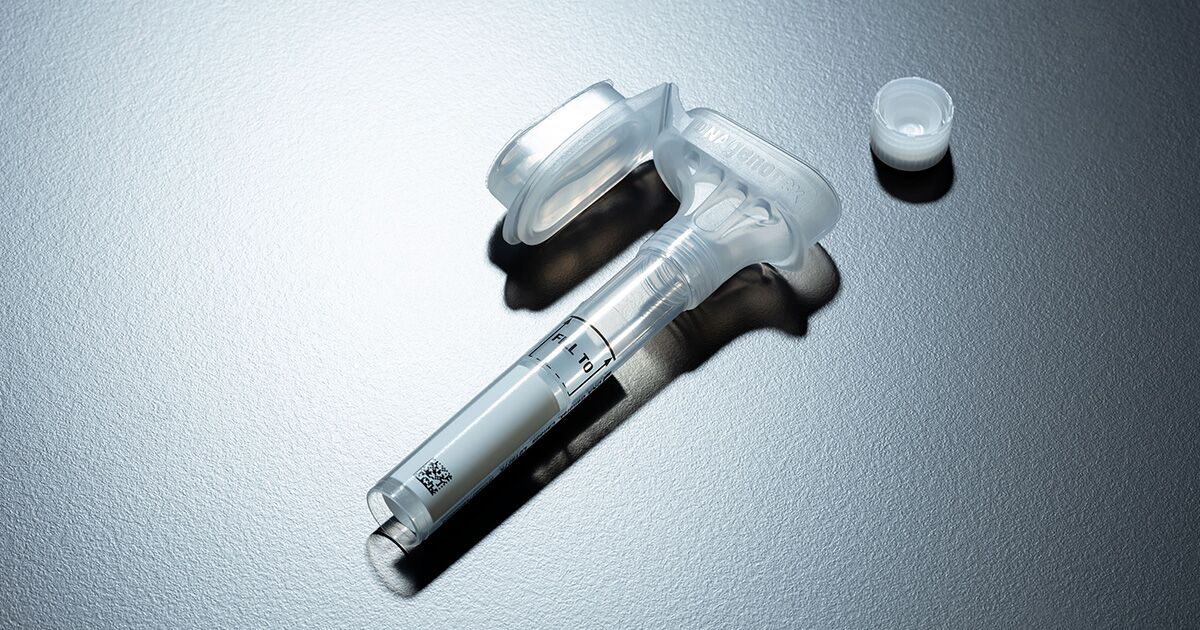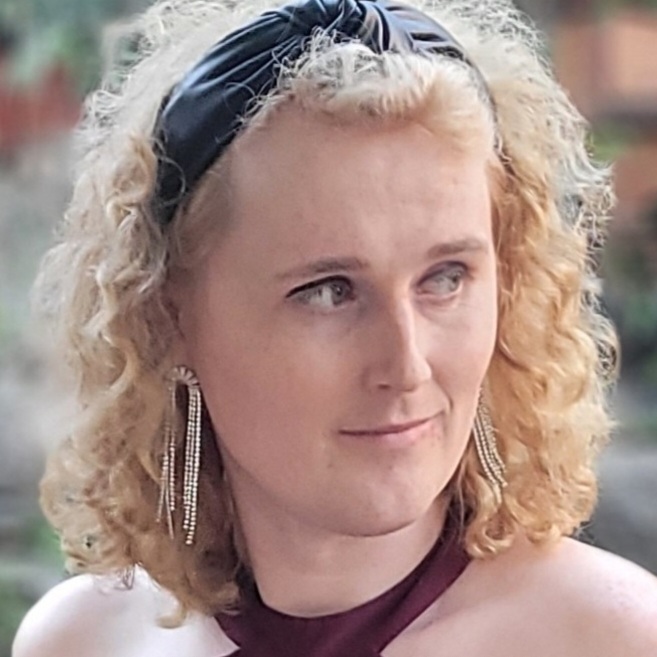It was clear from the beginning that 23 and me wasnt selling these far below cost out of the goodness of their heart. They were going to use it to profit one way or the other. The question was how not if.
Removed by mod
This seems like corporate whitewashing of all the insidious things they will actually sell user data for. Like “yeah we sell user data but only so we can make a cure for cancer” meanwhile they are selling it to organizations that are building biometric monitoring databases straight out of Minority Report.
deleted by creator
This entire conspiracy theory falls apart once you realize there is more than one group trying to cure cancer, and have cured multiple cancers, as curing cancer is vastly more profitable than treating it.
Once your cancer is cured, you no longer need treatment, and you won’t seek treatment if there’s a cure.
Cancer cures (and eventually, vaccinations) are an arms race, and only efficacy matters
Companies burn food to ensure scarcity and protect their bottom line.
We’re stupid
Except companies aren’t the ones curing cancer, academics are… Companies will gladly use the free R&D, productize, and make a quick profit.
With NIH and FDA oversight and HIPPA compliance right?
Right?
23 and me isn’t a healthcare provider and not a “covered entity” under HIPAA . So the protections that would apply if you got genetic testing through your doctor from an actual medical genetic testing company don’t actually apply to 23 and me. Though the company maintains it follows federal regulations voluntarily “as a courtesy.”
So don’t worry, your genetic data is protected by the good will of venture capital tech bros.
Any unregulated entity that swears they’re doing the right thing is straight up lying
Yeah 23 and me wanted to have their cake and eat it too. They wanted to run tests for genetic diseases but not have to comply with any of the regulations that would entail, including critical things like HIPAA, offering proper informed consent before testing (which is not just a form but is an actual conversation with a medical professional), and offering up included follow-up genetic counseling services for individuals and their families. This is critical for genetic testing especially, which usually have results that are far more complicated than just a simple negative or positive. Basically just the airbnb or uber models of skirting regulations for profit but applied to genetic testing. FDA stopped them though, so instead of complying with regulations there for good reason they cut out the actual medical tests and now just compile things like, your risk of heart disease may be ~4% instead of ~3% because of this SNP marker we found. All so that the FDA and others can’t regulate them like true medical testing companies.

Oh come one, we all knew this right? I spit in the tube knowing they’d use it for drugs, sale or some other research shit. They also feel like they made this pretty clear throughoit the process that they’d use your spittle for science.
That’s probably the best case scenario honestly. They use our saliva and cure cancer. That’s a great thing for humanity.
The other applications range from questionable to dystopian… Making a database of everyone’s DNA for law enforcement, data leaks and dark-web selling your DNA sequences, insurance buying the data to limit coverage after a claim, forensic genealogy as a way to catch criminals, using forensic genealogy to predict future offenders, targeted bio weapons, future tech like making clones of people, manufacturing fake evidence to plant, using genetic info to target certain types of people (race, gender, what if sexuality is genetic)
One things missing with most of the those: profits. I’d be more worried about bad actors stealing the DNA data and using it for all those. The businesses will keep within regulations to keep the profits rolling in without getting shutdown.
The business will gladly sell to the alphabet boys. And hackers will definitely get the data from poor security.
Not suprised. Also not suprised they have been handing this data over to law enforcement for years now. Its no just to track down people whove taken said test but also people who are related even distantly. The fbi estimates they can use dna evidance to single dowm the possible people to 2 or 3 out of the entiriry of the us
The fbi estimates they can use dna evidance to single dowm the possible people to 2 or 3 out of the entiriry of the us
i am not sure what you mean by this sentence, but you probably misunderstood something.
dna doesn’t single down anything, as in it would help you track something. it tells you if two genetic profiles are a match (that means they come from same person), or that they are genetically similar and how distant they are - that tells you that the profiles come from x times removed relatives. after that, it is down to normal police work.
here is veritasium video about how they used this technology to find and convict the infamous golden state killer - https://piped.video/watch?v=KT18KJouHWg
Yeah and with a big enough database u can get an almost perfect modal of the country and everyones placw in it.
with big enough database you simple have every single person in it. that still doesn’t back up the quote i disputed in any way. can you find source of the quote? i’d be interested to see the original.
They caught the Bay Area Strangler(or whatever his title was) by finding a dna relative match on one of these services and using that to narrow down suspects. DNA can absolutely be used to narrow things down without just having a direct 1:1 match saying it’s THAT person.
they “narrowed it down” to about 1000 people. that is the case covered by video i linked in my comment above.
the sentence The fbi estimates they can use dna evidance to single dowm the possible people to 2 or 3 out of the entiriry of the us is still nonsense
It’s not exclusively DNA they’re using.
It never was exclusively DNA.
There are location, sex, age, and other factors to consider that help narrow it down. You could have 1000 close matches, but only half a dozen or so that could actually have committed the crime, and only a few of them that fit the profile.
You guys are arguing semantics. Walk away…
I’m pretty sure they were upfront about their intended use to help research personalized medication. This isn’t some conspiracy.
deleted by creator
Yeah, from two years ago and it wasn’t even surprising then.
deleted by creator
Removed by mod
They do, there is a wide range of genetic tests done on newborns. Mostly looking for rare genetic diseases that need treatment from birth. https://www.genome.gov/genetics-glossary/Newborn-Genetic-Screening
Removed by mod
Wow! It’s something nobody could have ever guessed!
Yeah this doesn’t bother me. And I tend to be a somewhat paranoid person. But I got convinced to do one of these by my partner. And so far, no regrets. They had some family surprises, but they don’t regret it either. If they make some cool new meds with my DNA (honestly even if I have only the knowledge that they made meds from 23andme) I’m just going to go around saying hey that might have my DNA in it.
Just wait until you guys find out what they’re really doing is cloning us all to replace us with mindless worker drones. I accidentally met mine. They were nice. Bought me a coffee. Then I got real sleepy and woke up half buried in the woods. Real strange day.
Yeah I saw when that happened. I don’t do the open sharing. But it is easy to identify me as a Jew plenty of other ways. Including online with things attached to my real name. So it is what it is.
If problems arise, you can always ditch your name but not your DNA. Obviously, those are worst case scenarios but I’m personally worried about DNA being used by insurance companies, being coupled to credit scores, used for higher education admittance, etc
Haha, decent show actually.
Everyone who thinks this is legitimately bad. I ask, what do you think of AI art data sets? Sometimes, to make something new you have to have mass amount of data to start with.
I think people who paid to have a service, checked a box for their sample to be used for research, and the research is to cure disease, have significantly lower reason to be upset than an artist who used Twitter to upload their work and had said work used as a data set to train a product that will try to make their career even MORE financially immposible.
Boohoo. You signed up for a good cause. Get over it.
deleted by creator
23andme requires you to agree to what they ask, which is far more than what Johns Hopkins did for Henrietta Lacks.
deleted by creator
Informed consent laws were around well before The Immortal Life of Henrietta Lacks came out. I think there were earlier publicized examples of subject mistreatment (like Tuskegee) that already pushed the field to be better.
There’s a big difference between a person’s DNA and a person’s art. DNA is the principle part of someone’s biometric identity, which can be used to reveal an enormous amount of information about a person. Hence it is not unreasonable to expect that its usage will be handled in a careful and clearly defined manner. Most countries have very strict laws on biometric data for a reason.
The same can not be said for a piece of art. While an an artwork will often convey aspects of the artist’s personality, and can conform to an identifiable style, it would provide no where near the level of insight into a persons physical identity as a DNA sample.
It also seems a stretch to conflate sharing something privately and publishing something publicly. The former will have expectations of privacy and control, regardless of whatever is stated any legalese incomprehensible to the average person. The latter however assumes a loss of control, to share something publicly is in some ways to cede it to the public.
deleted by creator
deleted by creator
This isn’t even new. Why are we posting things from over two years ago and treating it like some sort of revelation?
Called it.
Can you show us where?
Fuck yeah we did!
surprisedpikachuface
I just remembered that destin from smarter everyday did a dedicated video about the privacy of this: https://www.youtube.com/watch?v=U3EEmVfbKNs, then, was it complete bull shit?















